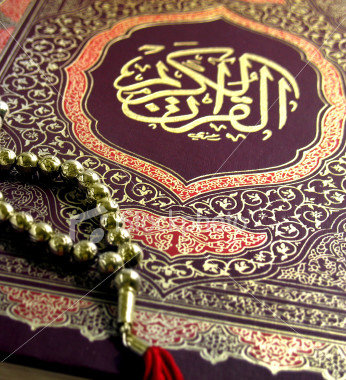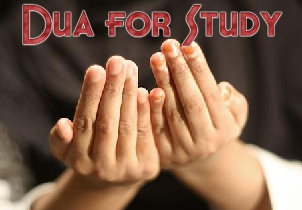Archive for the ‘MC-Islam’ Category
- In: Islam | Islam News | MC-Islam | Miscellaneous | Miss-Conception
- Leave a Comment
- In: Islam | MC-Islam | Miscellaneous | Miss-Conception
- Leave a Comment
- In: Islam | MC-Islam | Miss-Conception
- 6 Comments
Muslim Womens Rights in Islam
Posted on: June 18, 2013
- In: Islam | MC-Islam | MC-Women | Miss-Conception | Women In Islam
- 4 Comments
- In: All | Allah الله | Christianity | Islam | MC-Islam | MC-Quran | MC-Women | Miss-Conception | Women In Islam
- 1 Comment
Terrorism is to Jihad as Adultery is to Marriage

For the past four days I had been working on the following article, which I intended to post yesterday evening. However, I then heard about the vile and sadistic act of violence carried out by two men with knives and a meat cleaver in Woolwich. So I thought it best to review the blog post in light of the event, to see if I should develop it in any way. But barring a few edits here and there, I am posting the article more or less as it was originally written.
This is a brief overview of what Islam has to say about jihad, terrorism and the sanctity of human life. It bases itself, not on the need to please policy makers or the powers to be, nor on a colonialised mindset desperate to fit Islam into some acceptable liberal mould, but upon the texts of the Qur’an and the Sunnah, and the consensus (ijma’) and considerations of mainstream Muslim jurists.
On a personal note, combating terrorism, and its ideological underpinnings, has long been a significant part of my da’wah or outreach programme; and all praise is for God. It was animated long before the events of 9-11 or 7-7; since 1992 in fact, when a few of my teachers in shari’ah alerted me to its realities, dangers and its unIslamic character. What follows is, as stated earlier, a brief trek across some of that terrain:
♦
1. The first thing to mention in this regards is Islam’s outlook concerning the sanctity (hurmah) of human life. For as Islam views it, the human creature is indeed a sacred creation; so much so that: Whoever kills a person for other than crimes of manslaughter or corruption in the earth, it shall be as if he has killed the whole of humanity; and whosoever saves the life of one person, it shall be as if he has saved the whole of humanity. [5:32] Such, then, is the extraordinary value placed on human life in the Qur’an. And thus, as will be shown, acts of terror where women, children and other civilians are intentionally targeted and killed is categorically repudiated by Islam and by the agreement of those versed in law and learning among the Muslims.
2. Jihad as a word stems from jahada, which means: to strive, to exert oneself, to take extraordinary pains. As for its religious sense, al-Raghib al-Asbahani (d.425H/1034CE) defines it thus: ‘Exerting one’s utmost ability in repelling an enemy, and it is of three kinds: namely, contending against the outward enemy, the devil, and one’s ego. Each of these enters into God’s statement, exalted is He: And strive for God as He rightly must be striven for. [22:78] And strive with your wealth and your lives in the cause of God. [9:41] Also: Those who believed and left their homes and strove with their wealth and their lives in the cause of God. [8:72]’1
3. In Islam, the decision about war and peace is not left to scholars, soldiers, or anyone else. Rather it rests with the head of state who wields executive authority. This being a cardinal rule of warfare in Islam. Ibn Qudamah al-Maqdisi (d.620H/1223CE) explains the rule like so: ‘The question of declaring war [or not] is entrusted to the head of state and his decision (amr al-jihad mawkulun ila’l-imām wa ijtihadihi). Compliance with the decision is the subject’s duty in terms of what the authorities deem fit in the matter.’2 Al-Buhuti (1051H/1641CE) echoes the principle: ‘Declaring jihad or not is entrusted to the head of state and his decision, for he best knows the condition of the Muslims and of the enemy.’3
4. The classical Islamic doctrine that forbids killing non-combatants and civilians in an outward (military) jihad takes its cue from the Prophet’s words, peace be upon him: ‘March forth in the name of God, trusting in God and adhering to the religion of God. Do not kill elderly men, infants, young children or women.’4 And Ibn ‘Umar relates that the Prophet, peace be upon him, ‘forbade the killing of women and children.’5
5. After quoting the last hadith, imām al-Nawawi (d.676H/1277CE) typified the juristic consensus on the issue when he said: ‘Scholars concur upon acting by this hadith and forbid the killing of women and children, provided that they do not engage in combat. But if they do, the overwhelming majority of scholars (jamahir al-‘ulema) hold that they may be fought.’6 Ibn Qudamah, explaining the logic behind the consensus against not fighting women, the elderly, children, monks or traders, writes that each of these ‘are non-combatants (laysa min ahl al-qital).’7 Again, he states: ‘It is not permissible to kill a child among them, nor the insane, nor a woman, monk, elderly man, someone with a debilitating illness, and nor a blind man – except if they fight.’8
6. Thus, as has been shown, the intentional targeting and killing of civilians, which a fringe minority now seek to pass off as a bonafide jihad, is a gross departure from the classical juristic consensus and a perversion of the prophetic teachings. The wanton carnage and urban mayhem unleashed upon civilian lives, and the twisted re-readings of Islam’s scriptural sources by the current vanguards of terrorism, must continue to be denounced, repudiated and textually exposed. In unmasking terrorism (hiraba) for what it truly is, it has been aptly contended that: ‘Terrorism is to jihad what adultery is to marriage.’9 The Qur’an says: ‘What! Have you slain an innocent soul though he has killed nobody? Truly you have done a thing most foul.’ [18:73]
7. One argument extremists use to justify their acts of terror is to allege that civilians living in a democracy aren’t innocent at all. Their logic runs like this: In a democracy the government represents the will of the people, therefore civilian populations are complicit in their government’s foreign policies and are thus legitimate targets in war. This allegation is as false as it is factually distorted. What this reductionist everyone’s-guilty-in-a-democracy argument ignores or overlooks is that large swathes of citizens in a democracy may not agree with their government’s foreign policies, or even have voted them into power! So how can such citizens be complicit in their government’s actions? The anti-war demonstrations and protests against the Iraq war, for instance, which scores of millions of ordinary citizens across Western Europe and the United States rallied behind, is enough to show the fallacy of such logic. Moreover, as we shall see below, the shari’ah still considers such people as not being min ahl al-qital – “actual combatants”.
8. A more direct rebuttal of this twisted logic would be to look at the context in which the Prophet, peace be upon him, prohibited the killing of women, children and other civilians in war. This injunction was given when the Prophet, peace be upon him, and the early Muslims were in the midst of war with the pagan Arabs of Mecca, whose goal was no less than the extermination of Muslims. The Makkan idolators were a tightly–knit confederacy whose tribal elders would make decisions collectively at their tribal councils. The average person in such a society had far greater access to their elders and leaders and far more influence on policies than any citizen in today’s Western democracies. In fact, it was not uncommon for women (either married or related to tribal leaders, or those with social influence) to pressurise, cajole and even threaten their husbands into war with the Muslims, on pain of family disgrace and tribal ignominy, if they did not do so. During the battle of Uhud, women, led by Hind, even went out onto the battlefield to lend moral support to the aggressors. In spite of knowing all this, the Prophet, peace be upon him, still insisted: ‘Do not kill elderly men, young children, or women.’10 And when he once saw a woman that had been killed, he said: ‘This is not one who should have been fought.’11
9. Another proof used to justify the killing of civilians is a hadith in which the Prophet was asked about some of the idolators whose settlements had been attacked at night and which resulted in a few women and children being killed. This led him to say: ‘They are from them (hum minhum).’12 There are two reasons why this hadith cannot be used in this manner: Firstly, a large body of jurists consider the hadith to have been abrogated by the explicit command to ‘not kill civilians in war.’13 Secondly, jurists who do permit night raids that could result in civilian loss clearly state: ‘This is provided they [women, children and other non-combatants] are not deliberately targeted.’14 It is also interesting that a leading jurist of early Islam, as well as the actual sub-narrator of this hadith, imām al-Zuhri, would qualify the above hadith by immediately relating the hadith which forbids killing civilians. Thus: ‘Whenever al-Zuhri related this hadith, he would say: “Ka’b b. Malik’s son narrated to me; from his uncle … that the Prophet, peace be upon him, forbade the killing of women and children.”’15
10. Another aspect of the shari’ah which bears on the subject, but which has also come under extremism’s aberrant re-readings, is the notion of ‘aqd al-aman – “the covenant of security”. What this implies is that Muslims residing, for instance, in a non-Muslim land – either native born, naturalised or legal resident – are under an explicit pact or contract which renders all non-Muslim life, property and honour sacrosanct. That is, Muslim citizens of non-Muslim countries cannot engage in acts of aggression against their own state of fellow citizens. Ibn Qudamah said: ‘As for treachery towards them, this is expressly forbidden. For they only granted him security on condition that he not betray them and that they be safe from his harm. If this is not stipulated in explicit terms, it is implicitly implied. …This being so, it is unlawful for us to be treacherous to them, since this is betrayal; and our religion has no place for betrayal. The Prophet, peace be upon him, said: “The Muslims fulfil their contracts.”16’17
11. It isn’t possible to stress enough how seriously orthodox Islam takes the obligation to honour contracts and covenants, or how unlawful it is for a Muslim who lives or resides in a land to then attack it or its citizens. What should also be appreciated is that a Muslim may even hold the following opinion with no internal contradiction with the above ten points: that America and Britain are waging wars of aggression in the Middle East; however, Muslims who are under a pledge of security may not attack their country, nor its soldiers, nor any of its citizens. One hadith has this threat of humiliation and ignominy: ‘For every person who betrays a covenant will have a flag at his back on the Day of Judgement, which will be raised according to the level of his treachery.’18
♦
To conclude: the chorus of condemnation from Islam’s textual sources and religious authorities, against acts of terror, must continue to ring out urgently and loudly. If we wish to be dissenting voices on any issue of domestic or foreign policy, we must find legitimate ways within the democratic process to voice such dissent.
It is to their credit that Muslim scholars, despite differences between them on a whole array of theological and legal issues, have come out so unanimously against terrorism. What we also ask of them is to continue to strive to expose and eradicate the deviant notions and assumptions that underpin it. Our governments (British and American) also have a responsibility to act. For they can drain much of the extremists’ anger by securing a fair resolution to the Palestinian problem, closing Guantanamo Bay prison, and enacting just foreign policies. It is for the Muslim scholars, however, to vanquish the twisted fiqh-cum-theology of the terrorists.
≈
1. Mufradat Alfaz al-Qur’an (Damascus: Dar al-Qalam, 2002), 208.
2. Al-Mughni (Saudi Arabia: Dar al-‘Alam al-Kutub, 1999), 13:11.
3. Kashshaf al-Qina’ (Riyadh: Maktabah al-Nasr al-Hadithah, n.d.), 3:41.
4. Abu Dawud, Sunan, no.2614.
5. Bukhāri, no.3015; Muslim, no.1744.
6. Sharh Sahih Muslim (Beirut: Dar al-Kutub al-‘Ilmiyyah, 1995), 12:43.
7. Al-Mughni, 13:178.
8. ‘Umdat al-Fiqh (Riyadh: Dar al-Mayman, 2009), 220.
9. Abdal Hakim Murad, Contentions, 5/7, at http://www.masud.co.uk
10. Abu Dawud, no.2614.
11. Abu Dawud, no.2669; Ibn Majah, no.2842.
12. Bukhāri, no.3012.
13. See: Ibn Hajr al-‘Asqalani, Fath al-Bari Sharh Sahih Bukhāri (Beirut: Dar al-Kutub al-‘ilmiyyah, 1989), 6:182.
14. As per the classical Hanbali jurist, al-Buhuti, Kashshaf al-Qina’, 3:47-8.
15. Cited in Fath al-Bari, 6:182. I am grateful to Muḥammad Nizami for pointing out this report to me.
16. Al-Tirmidhi, no.1352.
17. Al-Mughni, 13:152.
18. Muslim, no.1738.
Shaykh Abu Aaliyah Shurkeel
Source : MM



Note:I’d love to see who visit my website,your views about website. Click here to leave your feedback.

Stay Connected With Free Updates
 |
 |
 |
If you cannot visit this site everyday and would like to receive our articles everyday via email, please click here and enter your email address in the new window.
PLEASE CHK YOUR EMAIL AFTER SUBMITTING EMAIL,YOU MUST CONFIRM SUBSCRIPTION ! |
![]()














































 Oh Allah,Please Forgive me
Oh Allah,Please Forgive me Ex-Christians-Now Muslim,Alhamdulillah
Ex-Christians-Now Muslim,Alhamdulillah I Love My Prophet Muhammad s.a.w
I Love My Prophet Muhammad s.a.w
















![Fake Grave of Prophet Muhammad [pbuh]](https://islamgreatreligion.files.wordpress.com/2009/07/prophet_muhammad_pbuh_tomb4.jpg)


















Recent Comments